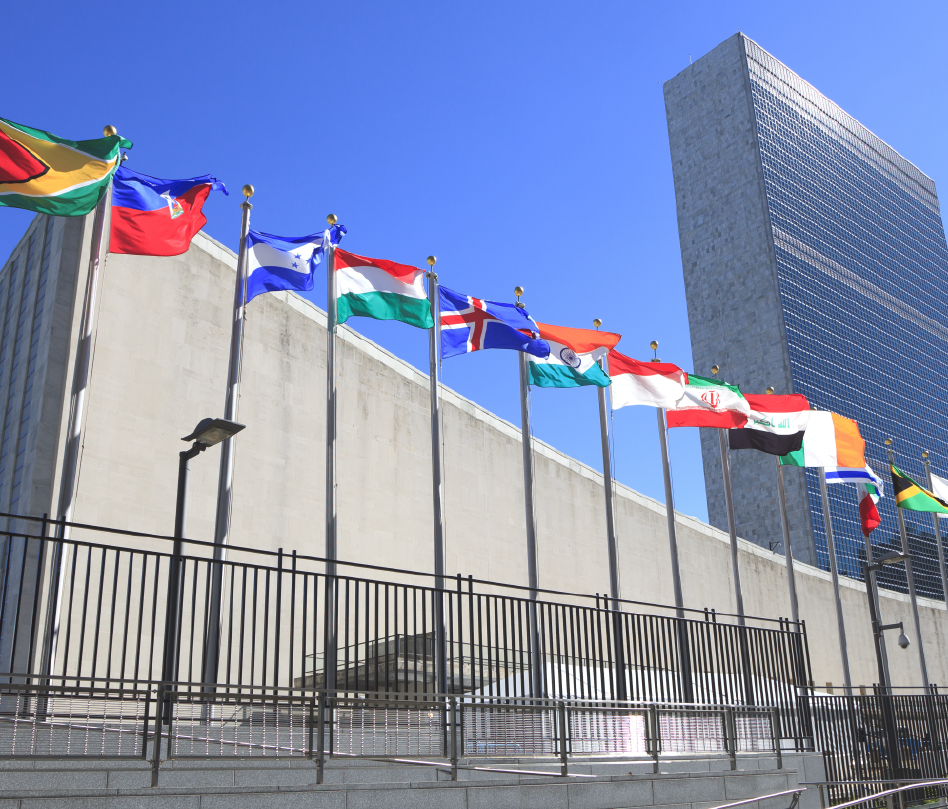This week, the United Nations (UN) is convening its 76th General Assembly in New York, where Member States will address some of the most critical issues impacting the global population. The ongoing COVID-19 pandemic, which continues to affect the health and wellbeing of communities around the world, is at the forefront of this year’s agenda. Despite substantial efforts from governments, NGOs, the private sector, and COVAX, a public-private partnership that has shipped more than 230 million COVID-19 vaccines to 139 low- and middle-income countries, global vaccination rates are lagging in some countries – suggesting a continued opportunity to coalesce around meaningful solutions to drive vaccination rates and curb COVID-19.
This year, United States President Joe Biden has coordinated a COVID-19 global summit, the first of its kind, to be held following the close of the annual assembly. The event is meant to serve as a rallying call for nations to step up their COVID-19 response through public health measures, and calling for an increase in dose donations. UN leaders have an opportunity to set the tone this week – before Biden’s summit – to rally support for these and other needed measures.
Unfortunately, some Member States have focused efforts on advocating for policies that would undermine vaccine research, development and manufacturing, specifically by waiving obligations to protect intellectual property (IP) under the World Trade Organization’s Agreement on Trade-Related Aspects of Intellectual Property Rights. This waiver would be a misguided attempt to increase access to COVID-19 vaccines and treatments. IP protections are the cornerstone of the collaborations between public and private organizations that have made our response to the global pandemic possible and should continue to be supported.
There are multi-pronged approaches to advance global COVID-19 vaccine equity and address real barriers without disrupting the innovation ecosystem.
- Continuing to optimize production: Currently, about 300 manufacturing and distribution agreements are in place across approximately 70 countries around the globe, enabling the production of life-saving vaccines at a rate that was previously inconceivable. At the moment, manufacturers around the world are expected to produce more than 11 billion COVID-19 vaccines by the end of 2021.
- Stepping up dose sharing and supporting country readiness: Countries worldwide have committed to distributing millions of vaccine doses to markets in need. However, the distribution of donated vaccine doses is failing to reach some of those who need them most. Currently, less than one percent of available vaccine doses have made their way into the arms of people in low-income countries. Working to ensure countries can get shots in arms should be a key focus area.
- Eliminating trade barriers: Given the complexity of COVID-19 vaccine manufacturing, which involves a complex global network of suppliers from many countries, trade or regulatory barriers, like tariffs or export restriction, can impede production.
The goal of achieving equitable vaccine access cannot be accomplished until Member States shift the conversation from dismantling IP protections for COVID-19 and instead focus on the real barriers. Without coordination from leaders across the globe, vaccination rates will continue to lag.
At the close of last year’s meeting, the General Assembly concluded that multilateral collaboration was of utmost importance for future global health efforts: “Only by working together and in solidarity can we end the pandemic and effectively tackle its consequences… Strengthening international cooperation is in the interest of both nations and peoples.” If these words can ring true throughout this year’s events, and world leaders focus on the true impediments to global vaccine equity, we can defeat COVID-19 while supporting the invaluable global innovation ecosystem.
“IP protections are the cornerstone of the collaborations between public and private organizations that have made our response to the global pandemic possible and should continue to be supported. There are multi-pronged approaches to advance global COVID-19 vaccine equity and address real barriers without disrupting the innovation ecosystem.”


